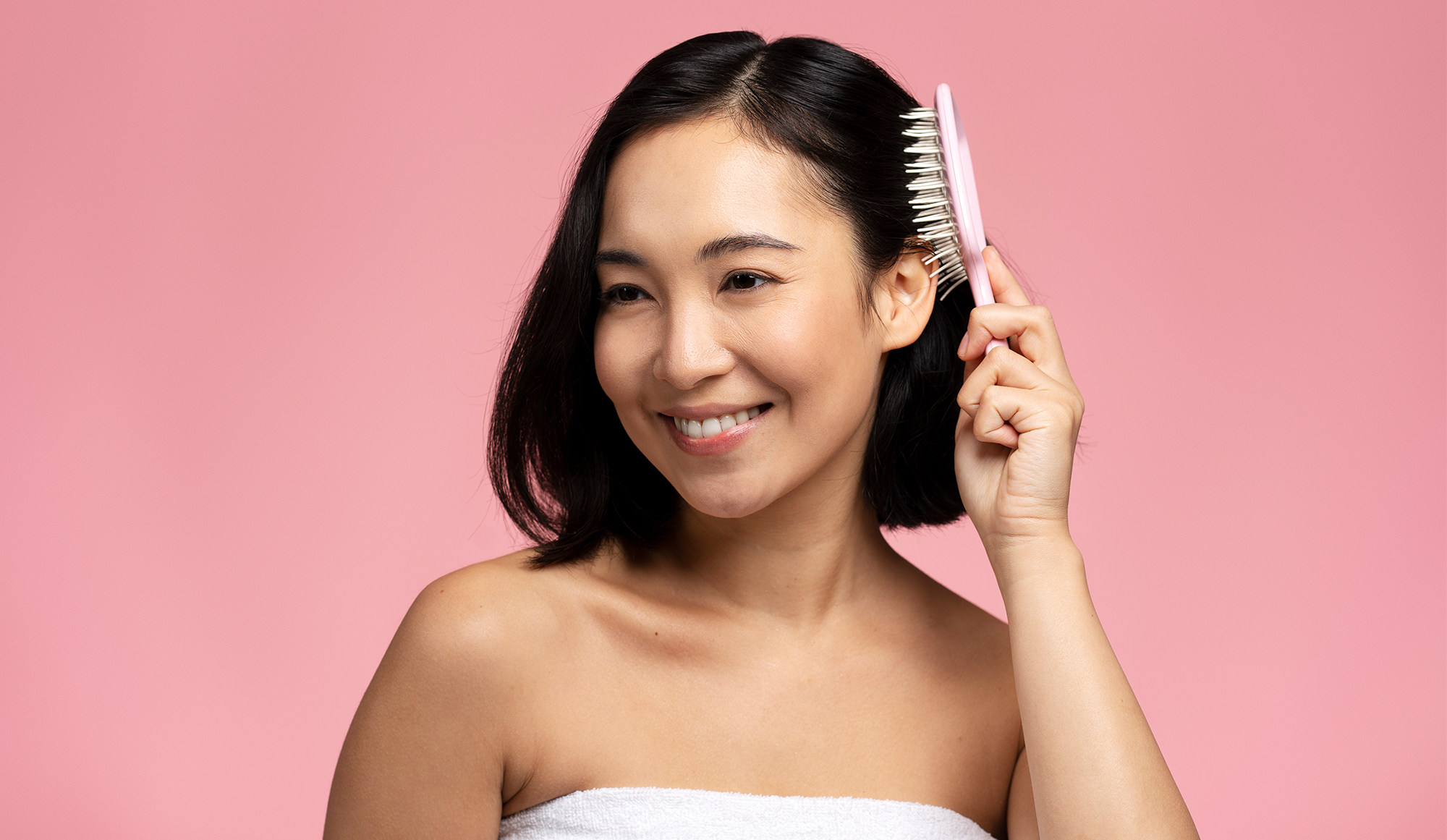
Medically Reviewed by Dr. Lee Hwee Chyen
MBBS MRCP (UK) FAMS (Dermatology)

The foundation of effective hair care lies in recognising your hair’s specific needs, influenced by its type, texture, and condition. It requires an understanding that healthy hair reflects overall well-being and a balanced lifestyle and often necessitates a tailored approach to its care.
Recognizing the specific needs of your hair type and condition is the first step towards selecting the right products and treatments.
Understanding your hair type is the cornerstone of effective hair care. Hair types vary in texture, density, and porosity, influencing how hair responds to products and treatments. Identifying your hair type allows you to select the most suitable products and tailor your hair care routine to meet your specific needs:
Porosity refers to your hair’s ability to absorb and retain moisture. High porosity hair absorbs moisture quickly but struggles to retain it, leading to dryness. Low porosity hair resists moisture absorption, often requiring products that can penetrate deeply.
Choosing the right shampoo is important as it lays the foundation for effective hair care. For oily scalp, a clarifying shampoo can help, while dry or damaged hair benefits from hydrating formulas. Curly or coily textures need moisturizing shampoos to combat frizz.
Fine hair gains volume from lightweight products. It’s essential to match the shampoo with your hair’s specific needs to maintain its natural balance and appearance.
Conditioner should be applied mainly to the mid-lengths and ends, avoiding the scalp to prevent greasiness. Leave it on for a few minutes for deeper nourishment, especially with a weekly deep conditioning treatment for dry or damaged hair. Proper application and thorough rinsing are key to preventing limpness, restoring moisture, detangling and making hair manageable.
Regular haircuts are essential to maintaining healthy hair, preventing split ends, and encouraging growth. Trimming your hair every 6-8 weeks removes damaged ends and keeps your hair looking fresh and vibrant.
It’s not just about length; even those growing their hair out benefit from occasional trims to avoid breakage. This routine maintenance helps improve hair texture and strength over time, making it easier to manage and style.
Before using heat styling tools, applying a heat protection product shields hair from damage. Heat protectants form a barrier on the hair shaft, minimizing moisture loss and cuticle damage.
This practice can significantly reduce the risk of dryness, breakage, and split ends caused by styling with hair dryers, straighteners, or curling irons. For best results, choose a product suitable for your hair type and follow the application instructions closely.
Whenever possible, choose air-drying over heat styling to prevent heat damage and retain natural moisture. Air-drying is gentler on your hair, preserving its health and enhancing its natural texture. To reduce frizz and add definition, apply a leave-in conditioner or styling cream after washing.
Switching to a silk pillowcase can significantly benefit your hair’s health. Silk’s smooth texture reduces friction, preventing hair breakage, tangles, and frizz as you sleep. This gentle fabric helps retain hair moisture and keeps hairstyles intact longer.
Minimizing the use of chemical treatments, such as colouring, bleaching, and perming, can help preserve hair health. These processes can weaken hair strands, leading to dryness, breakage, and loss of natural texture.
If you choose to undergo chemical treatments, ensure they are performed by professionals and consider using products designed to strengthen and repair chemically treated hair. Additionally, extending the time between treatments can give your hair a chance to recover and remain strong.
Regularly cleansing to remove product buildup, sebum, and dead skin cells is essential for scalp health. Use gentle, pH-balanced shampoos and consider incorporating scalp treatments or massages to improve circulation. Maintaining a balanced diet rich in vitamins and minerals also supports scalp health.
Drinking adequate water supports overall health and helps hydrate the scalp and hair from the inside out. Well-hydrated hair is less prone to dryness and breakage. Aim for the recommended daily water intake to ensure your hair and body are sufficiently hydrated, contributing to the strength and shine of your hair.
Caring for your hair is a comprehensive approach that extends beyond basic washing and styling. A robust hair care routine goes beyond the mere aesthetics of shiny and smooth hair; it involves understanding and catering to the unique needs of your hair type, ensuring its strength, elasticity, and vitality.